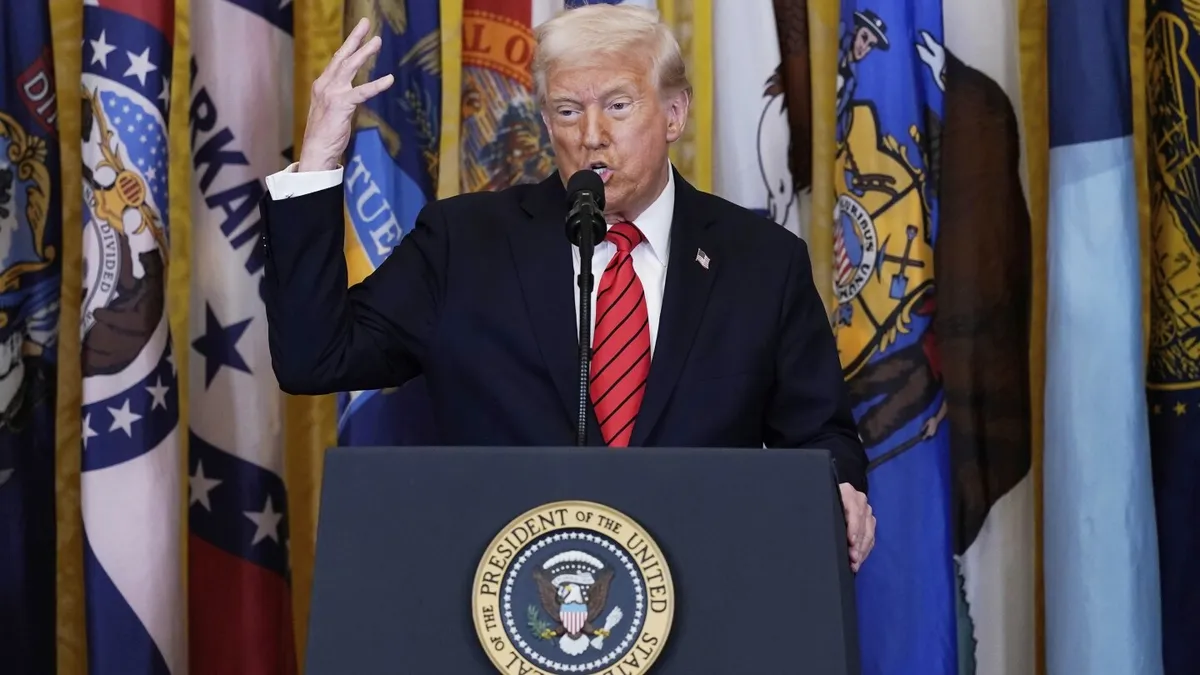
A California judge has ordered the Trump administration to suspend significant reductions to the federal workforce. This decision comes from Judge Susan Illston in San Francisco, who issued an emergency order on Friday in response to a lawsuit filed just a week prior by labor unions and cities. This lawsuit is among several legal challenges aimed at President Donald Trump's initiatives to shrink what he describes as a "bloated and expensive" federal government.
In her ruling, Judge Illston stated, “The Court holds the President likely must request Congressional cooperation to order the changes he seeks.” Consequently, she issued a temporary restraining order to pause the large-scale reductions in the federal workforce. This order specifically directs various federal agencies to cease actions related to the president’s workforce executive order, which was signed in February, and a subsequent memo from the Department of Government Efficiency and the Office of Personnel Management (OPM).
This temporary restraining order is set to expire in 14 days and does not mandate the rehire of any employees who may have already been let go. The plaintiffs in the case requested that the effective date of any agency action be delayed and that departments refrain from implementing or enforcing the executive order, particularly in areas where downsizing is either ongoing or imminent. Notably, the U.S. Department of Health and Human Services had previously announced plans to lay off 10,000 workers and centralize divisions.
During a court hearing, Judge Illston, nominated by former President Bill Clinton, highlighted that while the president holds the authority to initiate changes within executive branch departments, he must do so through lawful means. “He must do so with the cooperation of Congress; the Constitution is structured that way,” she emphasized.
President Trump has often claimed that voters provided him with a mandate to transform the federal government. He has appointed billionaire Elon Musk to spearhead these efforts through the Department of Government Efficiency (DOGE). As a result of these initiatives, tens of thousands of federal employees have been terminated, resigned through deferred resignation programs, or placed on leave. While there is no official count of job cuts, reports indicate that at least 75,000 federal employees opted for deferred resignations, and thousands of probationary workers have already been dismissed.
Judge Illston highlighted the consequences of the downsizing in her order. For instance, a union representing federal workers conducting research on health hazards for mineworkers is facing the loss of 221 out of 222 positions in its Pittsburgh office. Additionally, a Vermont farmer experienced delays in receiving disaster aid inspection after flooding, resulting in missed planting opportunities. Furthermore, reductions in the Social Security Administration's workforce have led to longer wait times for beneficiaries.
All the agencies affected by these cuts were established by Congress, which adds to the complexity of the situation. Government lawyers argued that the executive order and memo outlining the personnel reductions merely offered general principles for agencies to follow, inviting comments and proposals for legislative engagement. “It is setting out guidance,” stated Eric Hamilton, a deputy assistant attorney general.
However, Danielle Leonard, representing the plaintiffs, contended that the president, DOGE, and OPM were operating outside their authority and not facilitating dialogue with the agencies. “They are not waiting for these planning documents to go through long processes,” she argued. “They’re not asking for approval, and they’re not waiting for it.”
The temporary restraining order affects numerous departments, including the Departments of Agriculture, Energy, Labor, Interior, State, Treasury, and Veterans Affairs. It also encompasses the National Science Foundation, Small Business Administration, Social Security Administration, and the Environmental Protection Agency.
Additionally, some labor unions and nonprofit organizations are involved in another lawsuit in front of a San Francisco judge, challenging the mass firings of probationary workers. Although Judge William Alsup ordered the government in March to reinstate these workers, the U.S. Supreme Court later blocked his ruling. The plaintiffs in these cases include the cities of San Francisco, Chicago, and Baltimore, as well as the American Federation of Government Employees and nonprofit groups like the Alliance for Retired Americans, Center for Taxpayer Rights, and Coalition to Protect America’s National Parks.